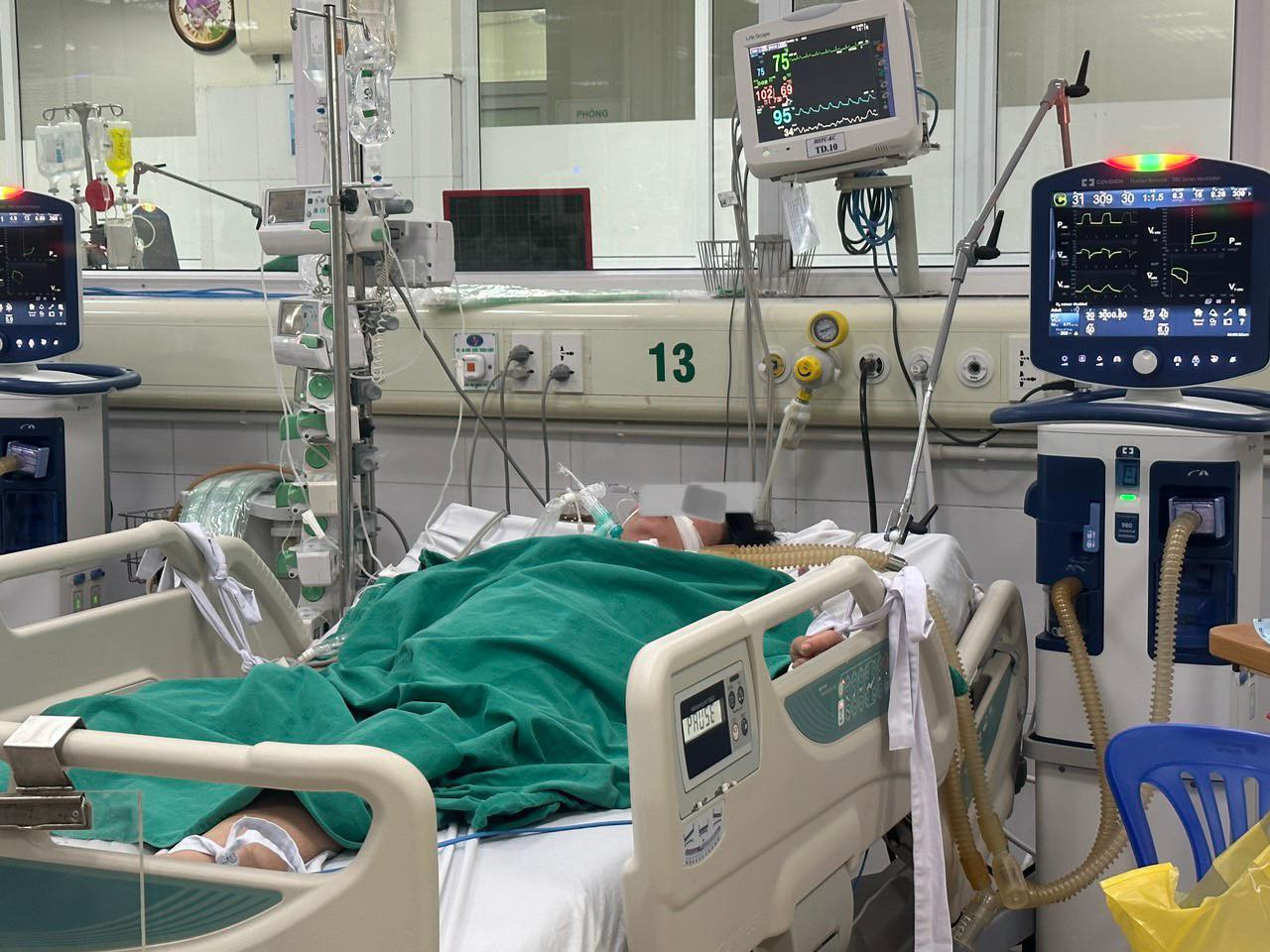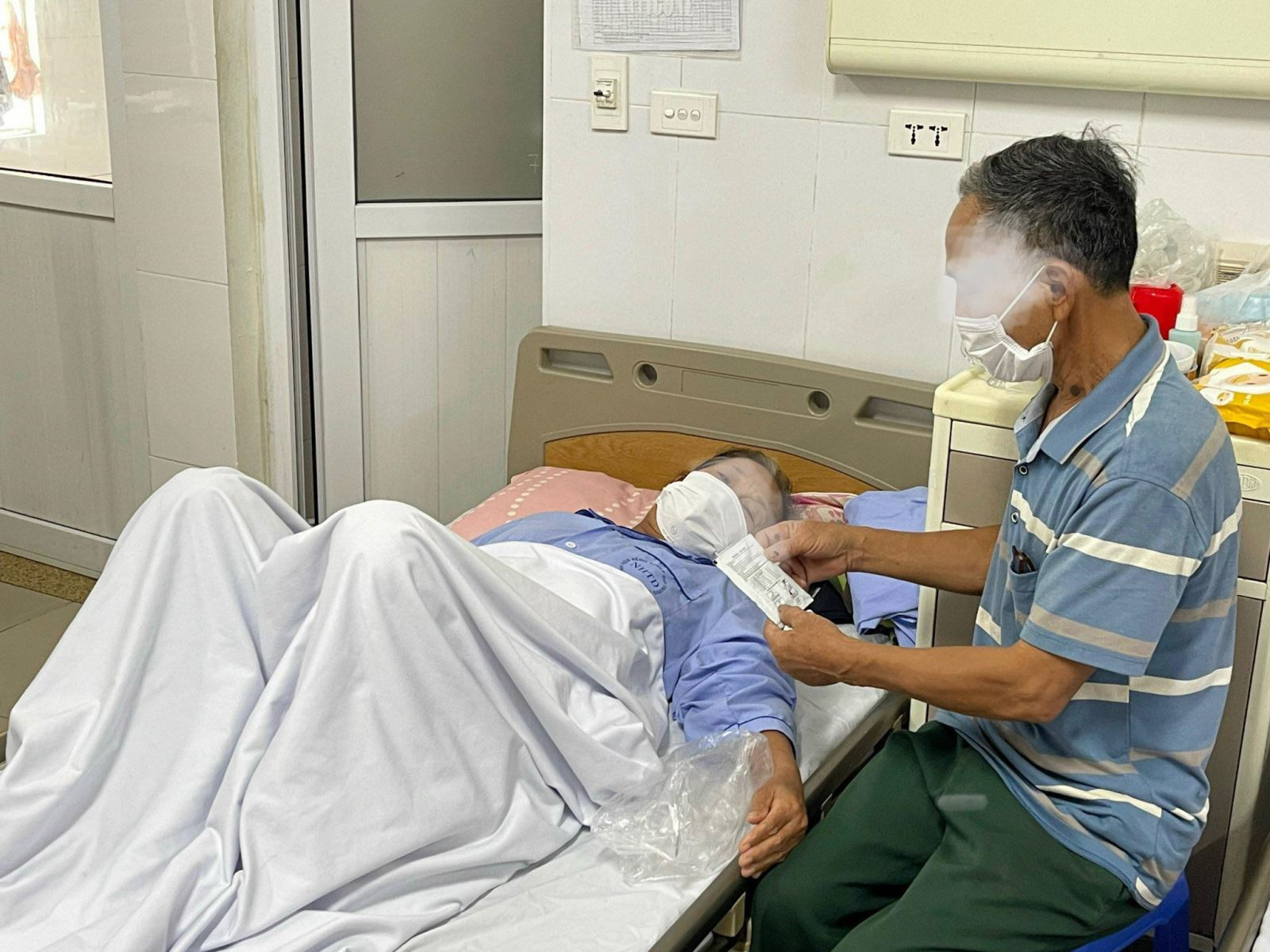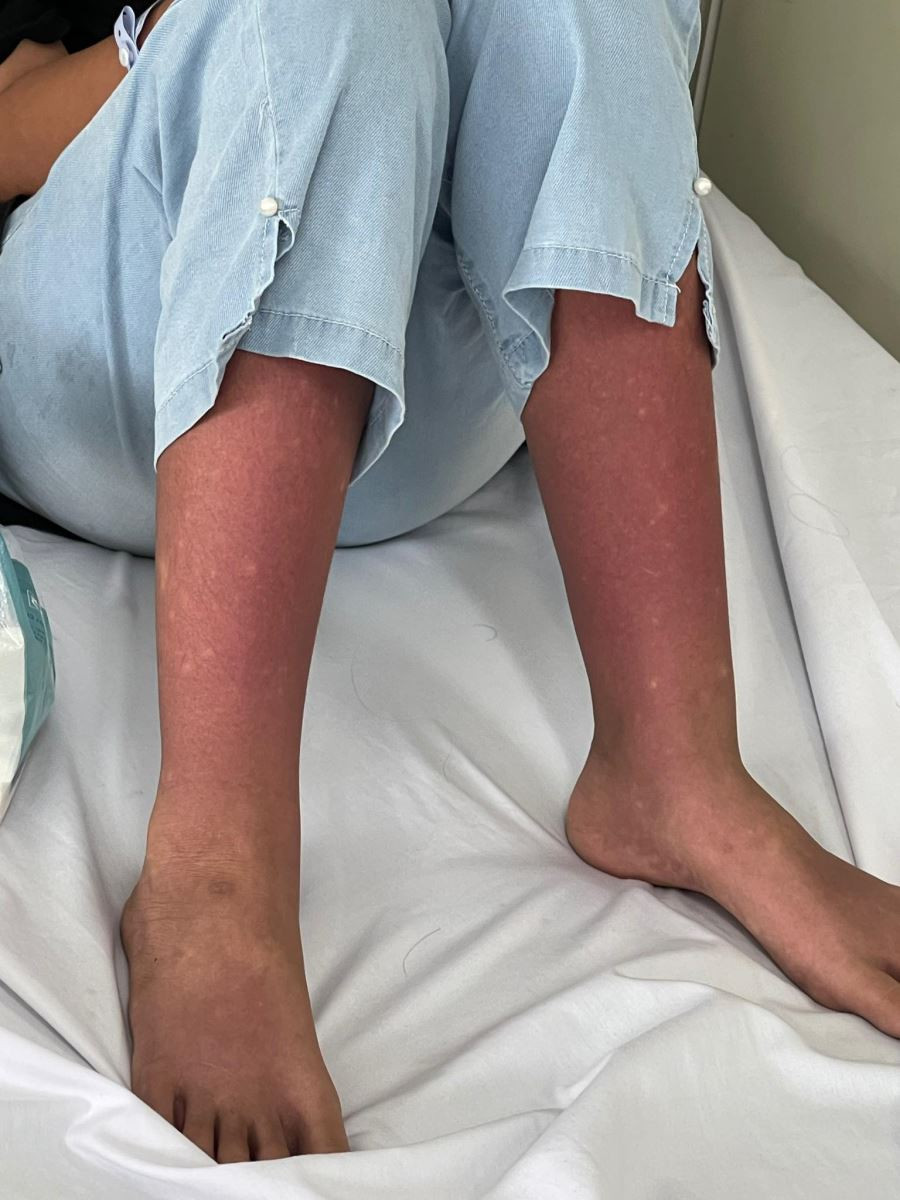When suffering from dengue fever, the period from the 3rd to the 7th day of illness is the most dangerous period, the patient is susceptible to shock, blood loss, low platelet count...

Many cases of critical hemorrhagic shock
The North is entering the peak period of dengue fever, the increase in the number of cases also leads to an increase in the number of severe cases, many cases with critical complications.
At the Central Hospital for Tropical Diseases, branch 2, the hospital is currently treating about 190 cases of dengue fever; of which 4 are severe cases, in particular, 2 cases have signs of hemorrhagic shock and blood loss shock.
Health has stabilized but still requires a ventilator. One patient is a pregnant woman (in Hanoi) with dengue fever and had to have a cesarean section at 34 weeks of pregnancy.
MSc. Dr. Pham Van Phuc, Deputy Head of the Intensive Care Unit, Central Hospital for Tropical Diseases, said: “This patient was admitted to the hospital on the 4th day of dengue fever; after 2 days in the hospital, the patient showed signs of labor and was promptly delivered by cesarean section. Currently, the patient has entered the 2nd week of hemorrhage and is in a more stable condition, conscious and still on a ventilator.”
Also receiving intensive treatment here is a female patient (46 years old, Hanoi) who was admitted to the hospital on the 6th day of dengue fever; there was bleeding under the abdominal wall muscle. The patient is still in serious condition, suffering from hemorrhagic shock, respiratory failure and requiring a ventilator; however, the patient has shown signs of slowing bleeding and is continuing to receive blood product transfusion support.

Regarding the case of dengue fever with bleeding in the abdominal wall muscles, according to Master, Doctor Pham Van Phuc, this is a rare but very dangerous case. Specifically, in the abdominal wall, the density of muscle and tissue has a very loose structure, especially in women, which can easily lead to massive bleeding, making it very difficult to stop bleeding. In the case of a patient with very low platelet count, causing a blood clotting disorder, any intervention at the bleeding site can increase the risk of bleeding. In the above patient, doctors must monitor the blood loss process, the rate of blood loss... if the rate of blood loss is greater than the rate of blood transfusion, surgical treatment will be required.
According to Dr. Pham Van Phuc, when suffering from dengue fever, patients can experience bleeding in many places such as the gums, nosebleeds, gastrointestinal bleeding, bleeding in the muscles... rarely bleeding in the abdominal wall muscles. When detecting blood loss in a patient, the doctor must examine carefully to find the bleeding location to have the most appropriate treatment.
As the dengue fever epidemic becomes more complicated, severe cases increase; the Intensive Care Unit also records patients with clinical symptoms of dengue fever such as: shock, hemorrhagic shock, septic shock, thrombocytopenia or encephalitis...

Don't be subjective when the fever goes away.
“Many people with dengue fever are complacent when they see their fever subside on the third day. Meanwhile, the third to seventh day of the disease is the most dangerous period, when the patient will experience shock, signs of bleeding, thrombocytopenia, blood clotting disorders...”, Dr. Pham Van Phuc warned.
Specifically, in the first 4 days of dengue fever, patients often experience symptoms such as fever and fatigue, but there are no obvious symptoms; this stage is not the most severe time of dengue fever, but this is the stage of detecting and monitoring complications. The period from the 3rd to the 7th day of the disease is the most dangerous period; patients are very susceptible to shock, with signs of bleeding, thrombocytopenia, blood clotting disorders, etc. at this stage.
To avoid complications of the disease, doctors also recommend that patients who have been examined and found to have dengue fever need to comply in order to be able to detect and treat it promptly and at the right time.
"In reality, many patients, when their fever subsides, think they are cured or think it is just a common viral fever. They may be subjective at this dangerous stage, leading to not being tested, not being monitored, not being treated, leading to shock, disordered indicators, especially low platelets, before being admitted to the emergency room," said Dr. Pham Van Phuc.
Accordingly, dengue fever is caused by a virus, with initial symptoms similar to other viruses. However, dengue fever has many possible complications. If not detected early and treated promptly, the patient will be at risk of death, when falling into a state of shock, bleeding, etc. Therefore, during the peak of the dengue fever season, when people have symptoms of fever, body aches, fatigue, they should go to the nearest medical facility for examination, diagnosis and the most appropriate treatment method, monitoring and avoiding serious complications.
According to Tin Tuc newspaper